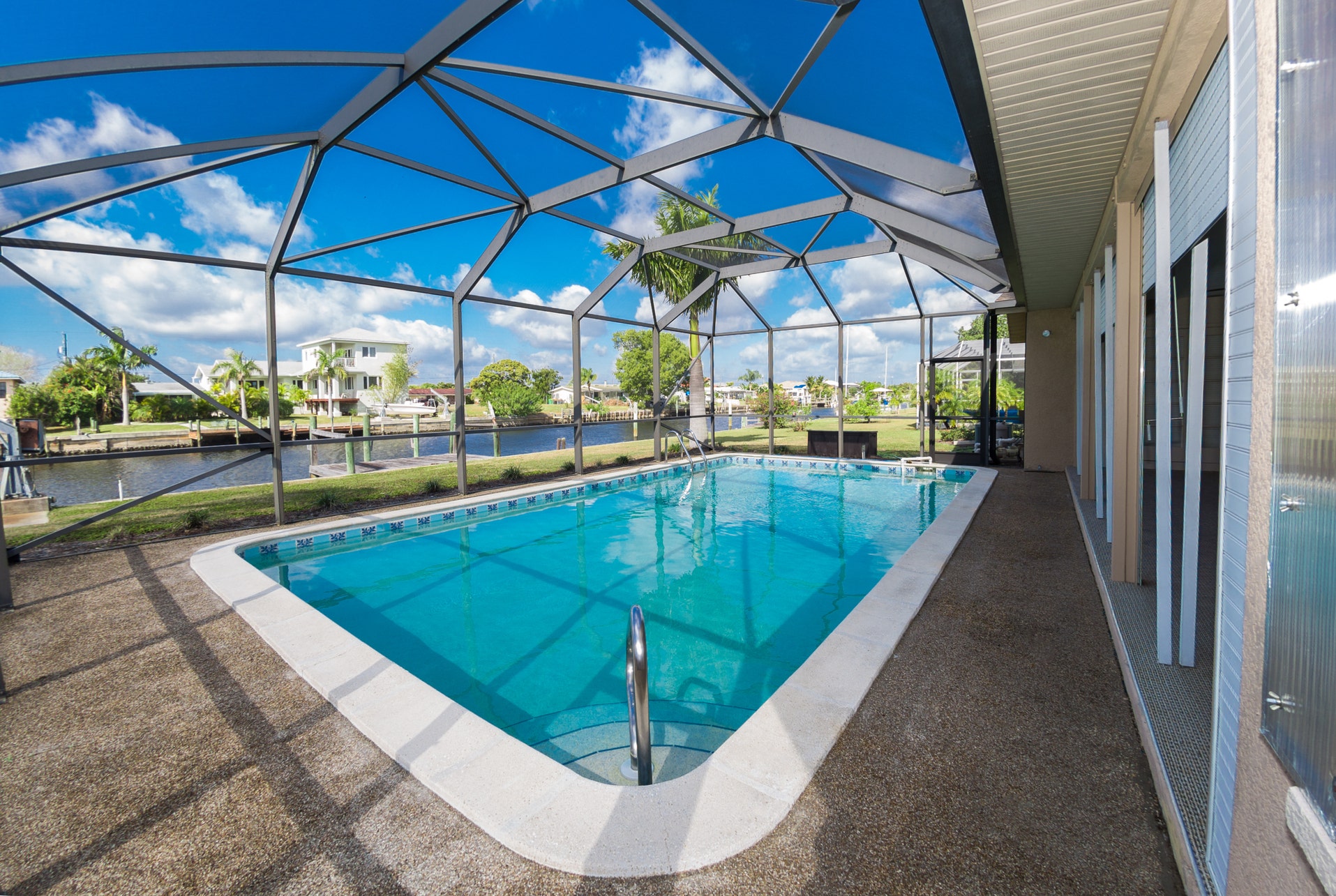

Are you dreaming of owning a saltwater pool but don’t know where to start? We’ve got you covered. Along with easy maintenance, it’s no wonder so many pool owners are converting their traditional chlorine pools to saltwater pools! Let’s learn together how to properly maintain and care for a saltwater pool.
Maintaining a Salt Water Pool
To maintain a saltwater pool you’ll need to keep your filter, pump, and skimmer clean and in good operating condition. With saltwater pools, you must inspect the salt chlorinator cell and replace it when needed. Test regularly for proper water chemistry to maintain clean, clear pool water.
A tool that will help maintain a saltwater pool is having a reliable salt chlorination system. These systems are designed to work seamlessly with your pool, efficiently converting salt into the perfect amount of chlorine needed to keep your water clean and clear.
With a salt chlorination system from Hayward, like the Aquarite S3, you’ll experience numerous benefits, such as softer and silkier water, reduced chemical costs, and a lower environmental impact.
Saltwater Pool Chemistry Tips
Using a saltwater pool test strip, test your water for free chlorine, salt, pH levels, total alkalinity, stabilizer, and total hardness. Use our online Water Chemistry Calculator to help make those adjustments and balance your pool water.
After experiencing severe weather or when the load has increased (e.g. hosting a pool party), it’s important to retest your pool water to ensure the chemical levels are within the appropriate range. Once you have tested the water, make sure to balance it accordingly.
7 Common Saltwater Pool Care Concerns
1. What’s the difference between a saltwater pool and a traditional chlorinated pool?
In a traditional pool, chlorine is added directly to the pool water. Advancements in the pool industry have led to a simpler and safer alternative: saltwater! Saltwater chlorination is a natural and more convenient sanitization method. Salt is dissolved in the pool and our system converts it into just the right amount of chlorine for clean, clear, and luxuriously soft water.
2. Is a saltwater pool easier to maintain?
Yes, a saltwater pool is easier to maintain! There’s no need to purchase, store, and add chlorine to your pool. Simply add salt and your pool’s salt chlorinator will do all the work of making chlorine. While all pools require chemicals to maintain clean, clear water, saltwater pools are more stable than traditionally chlorinated pools, so they require fewer chemicals.
3. Is a saltwater pool less expensive to maintain?
Yes, a saltwater pool has a reduced cost of operation as compared to a traditional chlorinated pool. This cost savings is primarily because chlorine is generated from salt and there is no need to buy chlorine. Additionally, saltwater pools require fewer chemicals to keep the water clean and clear.
4. Is a saltwater pool, salty?
Not at all! In fact, your pool’s salinity level is about 1/12 of the salinity of the ocean and a drop of water from a saltwater pool has less salt than that found in a human tear. In addition, salt water is soft and feels really good on your family’s skin!
5. How much salt does the system require?
Salt systems work best with approximately 3200 parts per million (ppm) of salt, which is roughly the equivalent of a teaspoon of salt per gallon. However, all Hayward Salt Systems are designed to operate with salt levels anywhere from 2700 ppm to 3400 ppm. When salt levels are outside this range, our various salt systems provide a means (typically an LED light) to alert you to the need to adjust your salt level. Man, that’s convenient.
6. What does it mean if my saltwater pool is cloudy?
Regardless of pool type, cloudy water is often a sign of chlorine deficiency or poor filtration and circulation. Be sure to diagnose the issue by checking your pool’s chemistry first and then adjusting the chemistry as needed. In a saltwater pool, the salt level may be insufficient or there may be a problem with the salt chlorinator. Keep your pool filter clean and run your system so that all the water is turned over once a day.
7. Is it hard to convert a traditional chlorinated pool to a saltwater pool?
Not at all! Read our blog How to Convert to a Salt Water Pool for a step-by-step guide to a new saltwater pool.
Comfort, Convenience, and Cost Savings
Moving from a traditionally chlorinated pool to a luxurious saltwater pool has never been easier. Whether you have a small backyard pool or a large commercial swimming pool, you can enjoy the many benefits of saltwater swimming pools: comfort, convenience, and cost savings.
Hayward makes it easy! Visit our Salt Water Pools page for helpful information to get you started and contact your Hayward Dealer for assistance today.
